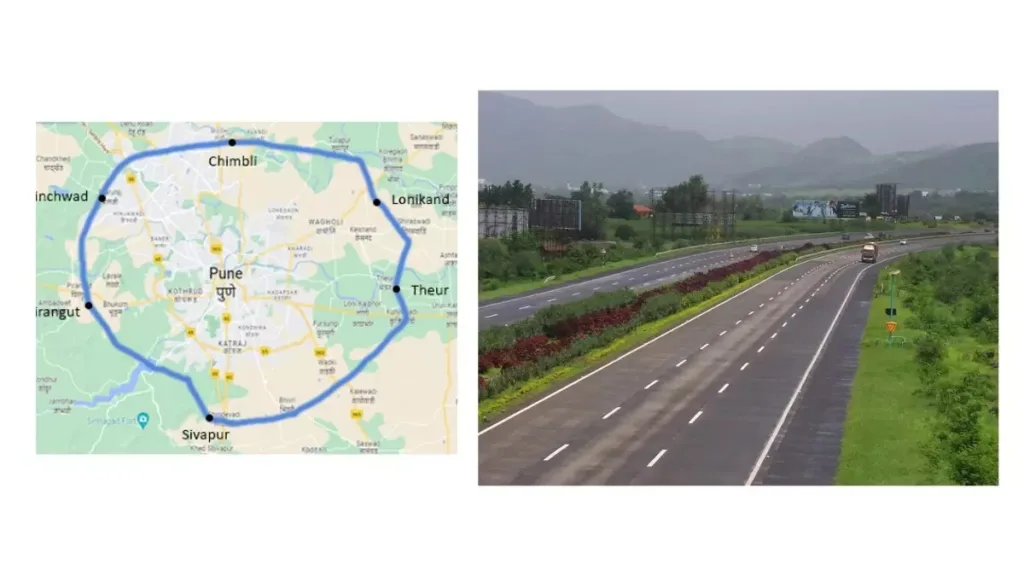Land acquisition for Pune ring road nearly completed

Land acquisition for Pune ring road nearly completed
Pune : The crucial phase of the Pune Ring Road project—the acquisition of land—has advanced quickly under the direction of Dr. Rajesh Deshmukh, the district collector for Pune. The initiative, which has been allocated a compensation of Rs 2,625 crore, represents a noteworthy achievement in the district’s development agenda.
The growing traffic congestion resulting from vehicles passing through nearby areas like Pune, Pimpri-Chinchwad, Sangli, Kolhapur, Saswad, Satara, Solapur, Ahmednagar, Nashik, Mangaon, Konkan, and Mumbai made a comprehensive ring road around Pune necessary. This constant flow increased air and noise pollution levels and put pressure on intra-city traffic dynamics. Consequently, on July 14, 2015, the government approved the plan to build a ring road around Pune. The project was given to the Maharashtra State Road Development Corporation (MSRDC), which divided it into East and West phases. Residents objected to the project’s proposed land measurements, but Collector Dr. Rajesh Deshmukh persisted in communicating with stakeholders and explaining the project’s importance.
Obtaining land from about eighty-four villages spread over six talukas was an enormous task. Rates were first set for areas vulnerable to various types of flooding and then updated by government orders on January 24, 2023. Throughout the procedure, ensuring landowner satisfaction was of the utmost importance.
Landowners from 32 villages along the Pune (West) Ring Road received notices in the first phase, facilitating options for consent. Notably, the establishment of a specific Land Acquisition Cell aimed to expedite the distribution of compensation following consent. The decisions made regarding the acquisition of land and the ensuing transfer procedure were completed in later stages.
The tariff determination for 48 villages on the East Ring Road has been completed, and in some of these villages, compensation disbursement has begun. Significantly, the landowners’ bank accounts now contain Rs. 2,625 crore, the largest amount of compensation ever given for public projects in the district.
The first phase, which included joint enumeration, rate determination, consultation, and compensation allocation, was completed within a year, indicating a strong commitment to project efficacy. The project is rapidly approaching completion thanks to Dr. Deshmukh’s unwavering leadership, departmental cooperation, and the coordinated efforts of concerned officers.









